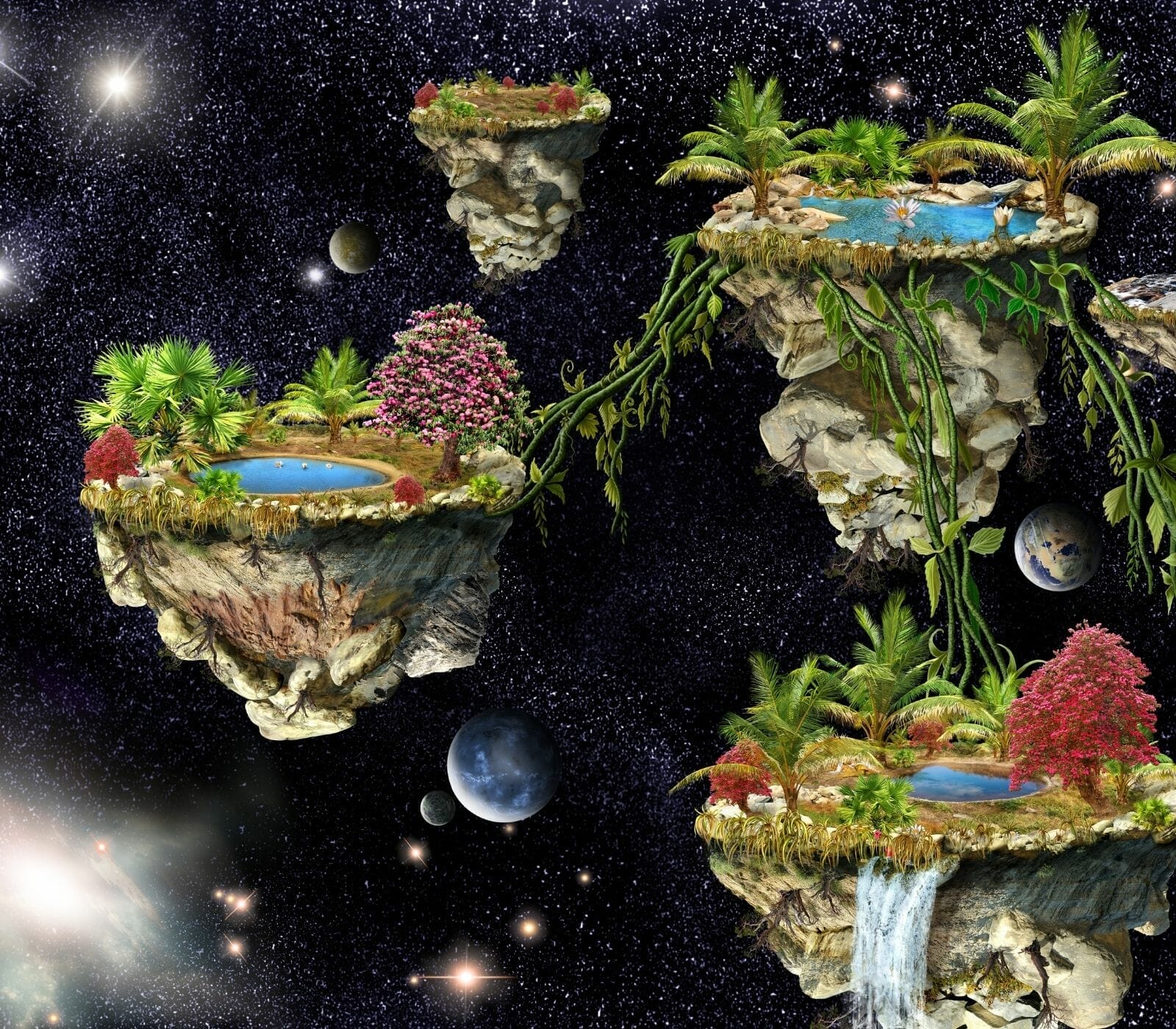The Importance of WorldBuilding

The Importance of WorldBuilding!
Worldbuilding – How to create a Fantasy world How to Worldbuilding?
Do we have a formula or a template to build a fictional world? This is a recurrent theme and commonly asked questions.
It is also a common question for writers of other genres. Science fiction, for example. Even realistic novels can feature fictional cities. With the intention, of course, to include their stories. So, where do you start?
Typically, one would start with a map, cultures, languages, etc. Right in the J.R.R.Tolkien style, author of The Lord of the Rings. But what if you want to create a world just to serve history? Without spending hours and hours studying geological formations, composing mythologies made of epic poems, as well as family trees of characters that will not even be mentioned?
The writer Kate Messner spoke in a TED Talk about this (video that you can see the video at the end of the article), a sequence of questions that help to streamline this process. Before presenting these fundamental questions, let’s reflect on what a fantasy world is and great examples to guide.
Characteristics of well-done Worldbuilding
Although Kate Messner’s vision is very “minimalist” about creating a fantasy world, there are really interested in delving into their fictional universe.
And that is fine. There is no problem with that.
Four Important factors in Worldbuilding
Physics
Basically, how close to our reality will the laws of physics in your world be?
After all, it is common in fantasy stories that these laws are broken through magic or their technological counterparts.
For example, travel faster than the speed of light, as in Star Wars.
Cosmology
Easy, you don’t have to be an astronomer.
However, it is important to define the laws that govern your universe.
Like the bizarre worlds that can appear in science fiction stories – say two moons on an inhabited planet and the consequences of that. Or the different plans for the existence of fantasy books, like someone going to heaven, or to hell, etc.
Another example would be Stephen King’s The Black Tower series. The protagonist, the last gunman in his world, ends up receiving a visitor from our reality in the first book.
Geography
There is even a term for creating fictional maps: geo-fiction. Such an obsession with creating geography in Worldbuilding can work if it is in the service of history.
However, creating faunas and floras, climatic patterns, and biomes is not always useful.
An example of geography in favor of the plot is the series Duna by Frank Hebert. The only use of the planet Arrakis is the removal of Melange, a fundamental spice. However, there are consequences of this, such as the relationship between the natives of the planet. Changes occurred between the desert people and the Empire’s extractors, who are entitled to stay with Melange.
Culture
Certainly, an item that could not be missing. Because there’s no use in an incredible universe if we don’t have characters.
They are the soul of the story. And culture is everything that supports them, through their relationships, from where conflicts and the system of beliefs and habits that influence the plot can arise.
Creating an alien culture, for example, is a significant challenge. Because it is necessary to create a whole system of thought, values, and beliefs different from the human.
For example, the behavior of a race-based on its language, as we see in the short story that gives title to the book Story of your Life by Ted Chiang.
Authors who created fantastic worlds very well built. Here is a shortlist, in addition to those already mentioned in the article:
Terry Pratchett, in the Discworld series
Robert Howard, in the Tales of Conan
George R.R.Martin, in Songs of Ice and Fire
J.K.Rowling in Harry Potter
Terry Brooks in Shanara’s sword
Among others…
And finally, let’s talk about the guiding questions that will facilitate your work.
How to build a Fantasy world, according to Kate Messner.
Kate Messner. is a writer. She is prolific in numerous genres, such as children’s, realists, thrillers, mystery, and science fiction.
Some of her books were selected for reading initiation programs, mainly because of the accessible language and deal with sensitive topics. Some of these topics are the consequences of addictions for families, class privileges, and different cultural perspectives.
Before becoming a full-time writer, she was a TV reporter and teacher for fifteen years, teaching high school English.
What about? Are you able to bring a different perspective on Worldbuilding?
The questions created by her, divided into three groups, are as follows (we comment on each group of them):
1) Create a timeline with the events that started this world.
– What past events have shaped you?
Particularly important because it avoids shallow characters who have no background story. And they enable the world to present the consequences of past events.
2) Answer questions that outline the world:
– What rules are in place? (From the law of gravity to social regulations and punishments for individuals who break them).
– What kind of government does this world have?
– Who has power and who doesn’t?
– What do people believe?
– And what does this society value most?
Social organizations provide the basis for conflicts. From the hierarchies and the proposed moral code for a particular group of people, innumerable conflicts can arise.
3) Questions that create everyday life:
– How is the climate in this world?
– Where do the inhabitants live, study and work?
– What do they eat, and how do they play?
– How do they treat their young and old?
– What relationships do they have with animals and plants?
– And what do animals and plants look like?
– What kind of technology is there? (Transport, communication, access to information…)
Some Important Notes
When creating a fictional world, something that cannot be lost sight of is: how does this fantastic place work on a daily basis? It is not enough to develop heroic and incredible characters. If we do not know how simple people live and how they relate, it will not be well established why other people stand out.
Perhaps even with all the questions well answered, you are only two or three pages of the document.
And, believe me, it may be enough.
The idea here is that you focus more on the three main points of a story.
Character
Plot
Language
It is, of course, without leaving your fantastic creative world aside.




